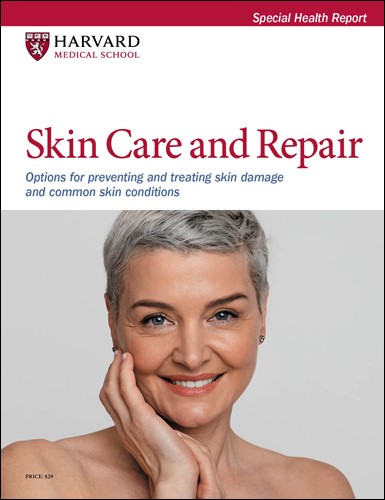Do retinoids really reduce wrinkles?

Topical vitamin A–based drugs called retinoids—the most used and most studied anti-aging compounds— may reduce fine lines and wrinkles. Tretinoin, under the brand name Retin-A, was the first retinoid. It was used as an acne treatment in the 1970s, but researchers later discovered that it also fades actinic keratosis spots, evens pigmentation, and speeds the turnover of superficial skin cells.
Retinoids reduce fine lines and wrinkles by increasing the production of collagen. They also stimulate the production of new blood vessels in the skin, which improves skin color. Additional benefits include fading age spots and softening rough patches of skin. However, it takes three to six months of regular use before improvements in wrinkles are apparent—and the best results take six to 12 months.
Because retinoids can cause skin dryness and irritation, doctors often recommend using them only every other day at first and then gradually working up to nightly applications. Wear a sunscreen during the day because retinoids increase the skin's sensitivity to sunlight. These drugs must be used continually to maintain their benefits.
Tretinoin (Retin-A, generic), tazarotene (Avage, Tazorac), and adapalene (Differin) are prescription retinoids. Adapalene is also available over the counter (in a 0.1% formulation versus the 0.3% prescription version). Other retinoids are undergoing clinical trials.
In addition, several over-the-counter products containing retinoids, such as retinol, are available. Because they're not as strong (and thus less irritating), they are not as effective in reducing wrinkles as tretinoin; but they do improve the appearance of photo-aged skin. Tretinoin can be used with alpha hydroxy acids (AHAs) for additional skin-smoothing effects.
Image: insta_photos/Getty Images
Disclaimer:
As a service to our readers, Harvard Health Publishing provides access to our library of archived content. Please note the date of last review or update on all articles.
No content on this site, regardless of date, should ever be used as a substitute for direct medical advice from your doctor or other qualified clinician.
















